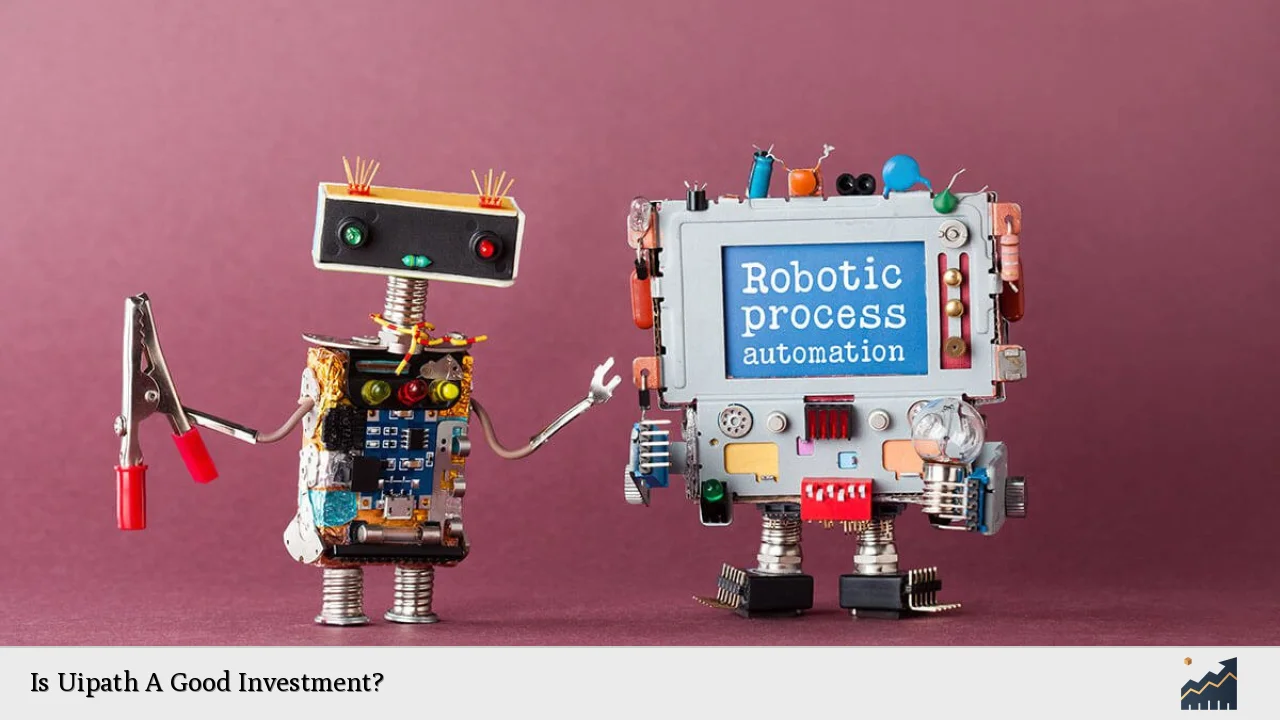UiPath Inc. (NYSE: PATH) has emerged as a significant player in the field of robotic process automation (RPA) and artificial intelligence (AI). As businesses increasingly seek to automate processes to enhance efficiency and reduce costs, UiPath’s solutions have gained traction across various industries. Investors are keen to understand whether UiPath represents a viable investment opportunity, especially in light of its recent financial performance and market positioning.
This article will explore UiPath’s financial health, market potential, competitive landscape, and future outlook to determine if it is a good investment.
| Aspect | Details |
|---|---|
| Current Stock Price | $12.71 |
| Market Capitalization | $7.24 billion |
| Annual Recurring Revenue (ARR) | $1.607 billion |
| Projected Earnings Growth | 23% over the next few years |
Financial Performance Overview
UiPath has demonstrated solid financial performance in recent quarters, which is crucial for assessing its investment potential. In the third quarter of fiscal 2025, the company reported revenues of $355 million, marking a 9% increase year-over-year. Additionally, its ARR reached $1.607 billion, reflecting a 17% year-over-year growth. This growth trajectory indicates a robust demand for UiPath’s automation solutions, which is essential for investor confidence.
The company’s balance sheet is another positive aspect, with no debt and approximately $1.7 billion in cash and marketable securities. This financial flexibility allows UiPath to navigate market volatility effectively while pursuing strategic investments in growth areas like generative AI.
UiPath’s dollar-based net retention rate stands at 115%, suggesting that existing customers are not only renewing their contracts but also increasing their spending on the platform. This metric is vital as it reflects customer satisfaction and the effectiveness of UiPath’s offerings in meeting evolving business needs.
Market Position and Competitive Landscape
UiPath has established itself as a leader in the RPA market, recognized by Gartner for six consecutive years. The RPA sector is projected to grow significantly over the next decade, driven by increasing demand for automation across various industries such as finance, healthcare, and manufacturing.
Despite facing competition from tech giants like Microsoft and emerging players such as C3.ai, UiPath’s innovative solutions and strategic partnerships with industry leaders bolster its market position. Collaborations with companies like SAP enhance UiPath’s product offerings and expand its reach, making it an attractive option for businesses looking to integrate automation into their operations.
However, potential investors should also consider the competitive landscape’s challenges. The rapid evolution of technology means that companies must continuously innovate to maintain their edge. While UiPath has shown resilience thus far, any missteps in execution could impact its growth prospects.
Future Growth Potential
Looking ahead, analysts project that UiPath’s earnings will grow by 23% over the next few years. This optimistic outlook is supported by the company’s focus on expanding its product offerings through investments in generative AI and other advanced technologies. The introduction of new features and capabilities could attract more customers and deepen existing relationships.
Analysts have set a consensus price target of $17.71 for UiPath stock, with a range between $12.00 and $30.00. This suggests significant upside potential from the current price of $12.71, making it an appealing option for investors willing to take on some risk.
Moreover, UiPath’s commitment to enhancing its automation platform positions it well for capturing market share as businesses increasingly adopt automation solutions to optimize their operations.
Risks to Consider
While there are compelling reasons to consider investing in UiPath, potential investors should also be aware of the risks involved. The company has experienced some revenue growth slowdowns recently, which could raise concerns about its ability to sustain momentum in a competitive market.
Leadership changes can also introduce uncertainty regarding strategic direction and operational execution. Investors should monitor how these changes impact the company’s performance and overall market perception.
Additionally, broader economic conditions may affect UiPath’s performance. Market volatility and macroeconomic headwinds could pose challenges that impact revenue growth and investor sentiment.
Conclusion: Is Uipath A Good Investment?
In conclusion, UiPath presents a mixed but generally positive investment opportunity based on its strong financial performance, solid market position, and promising growth potential through innovation in automation technology.
The company’s robust ARR growth and healthy balance sheet provide a strong foundation for future expansion. However, investors must remain vigilant regarding competitive pressures and internal challenges that could affect performance.
For those willing to embrace some risk while seeking potential rewards from a growing sector like RPA and AI, investing in UiPath could be worthwhile at this juncture. Conducting thorough research and staying informed about market trends will be crucial for making informed investment decisions.
FAQs About Uipath
- What is UiPath known for?
UiPath is known for its robotic process automation (RPA) solutions that help businesses automate repetitive tasks. - Is UiPath profitable?
As of now, UiPath has shown significant revenue growth but has not yet achieved consistent profitability. - What are analysts saying about UiPath stock?
Analysts have a consensus hold rating with a price target indicating potential upside from the current stock price. - How does UiPath compare to competitors?
UiPath is recognized as a leader in RPA but faces competition from major tech companies like Microsoft. - What is the future outlook for UiPath?
The future outlook is optimistic with projected earnings growth of 23% over the next few years.

